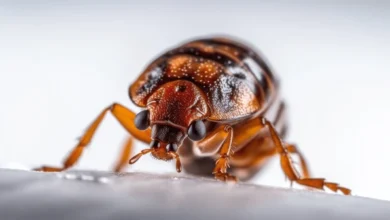Health
How to Fix Yellow Poop Understanding the Causes and Solutions

The color of your stool can reveal a lot about your digestive health. Yellow poop, while sometimes alarming, is often a sign of an underlying issue with digestion, diet, or overall health. Here’s a comprehensive guide to understanding and addressing yellow poop.
What Causes Yellow Poop?
- Dietary Changes
Foods rich in beta-carotene (like carrots and sweet potatoes) can turn stool yellow. High-fat meals can also contribute, especially if the body struggles to break down fats. - Malabsorption Issues
- Celiac Disease: Gluten intolerance can damage the small intestine, leading to poor absorption of nutrients, which may result in yellow, greasy stools.
- Lactose Intolerance: Inability to digest dairy products can cause diarrhea or yellow stools.
- Gallbladder or Liver Problems
The liver and gallbladder produce bile, which helps digest fats. Reduced bile production (due to gallstones, liver disease, or blocked bile ducts) can result in pale or yellow stools. - Infections or Parasites
Conditions like Giardiasis, caused by a parasite, can lead to yellow diarrhea due to inflammation and disruption of digestion. - Pancreatic Issues
Insufficient enzymes from the pancreas can impair fat digestion, resulting in pale, greasy stools. - Stress or Irritable Bowel Syndrome (IBS)
Stress can speed up digestion, leading to yellow stool as food moves too quickly through the digestive system.How to Fix Yellow Poop .
How to Fix Yellow Poop
- Evaluate Your Diet
- Monitor Food Intake: Keep a food diary to identify triggers like fatty or yellow-pigmented foods.
- Balance Nutrients: Opt for a balanced diet with whole grains, lean proteins, and plenty of fruits and vegetables.
- Stay Hydrated
Proper hydration supports digestion and prevents constipation, which can exacerbate stool color changes. - Address Food Intolerances
- Eliminate foods like gluten or dairy if you suspect intolerance. Consider consulting a dietitian for guidance.
- Try an elimination diet to pinpoint specific triggers.
- Seek Medical Advice for Persistent Issues
- If yellow poop persists, consult a healthcare professional. Tests may include blood work, stool analysis, or imaging to diagnose underlying conditions like liver or gallbladder dysfunction.
- Discuss any unexplained weight loss, fatigue, or abdominal pain with your doctor.
- Probiotics for Gut Health
Probiotics can help balance gut bacteria, improving digestion and potentially reducing stool discoloration. - Treat Infections or Parasites
If an infection like Giardiasis is diagnosed, your doctor may prescribe antibiotics or antiparasitic medications. - Manage Stress
Practices like meditation, exercise, and proper sleep can help reduce stress and its impact on your digestive system.
When to Worry About Yellow Poop
- Persistent Symptoms: If yellow stool continues for more than a week, it’s time to consult a doctor.
- Other Symptoms: Seek immediate attention if yellow poop is accompanied by fever, severe abdominal pain, or jaundice (yellowing of the skin and eyes).
Final Thoughts
Yellow poop isn’t always a cause for concern, but it’s important to pay attention to other symptoms and triggers. Adjusting your diet, managing stress, and seeking medical attention when necessary can help resolve the issue and maintain your digestive health. If in doubt, don’t hesitate to seek professional medical advice for a comprehensive evaluation How to Fix Yellow Poop .
4o





